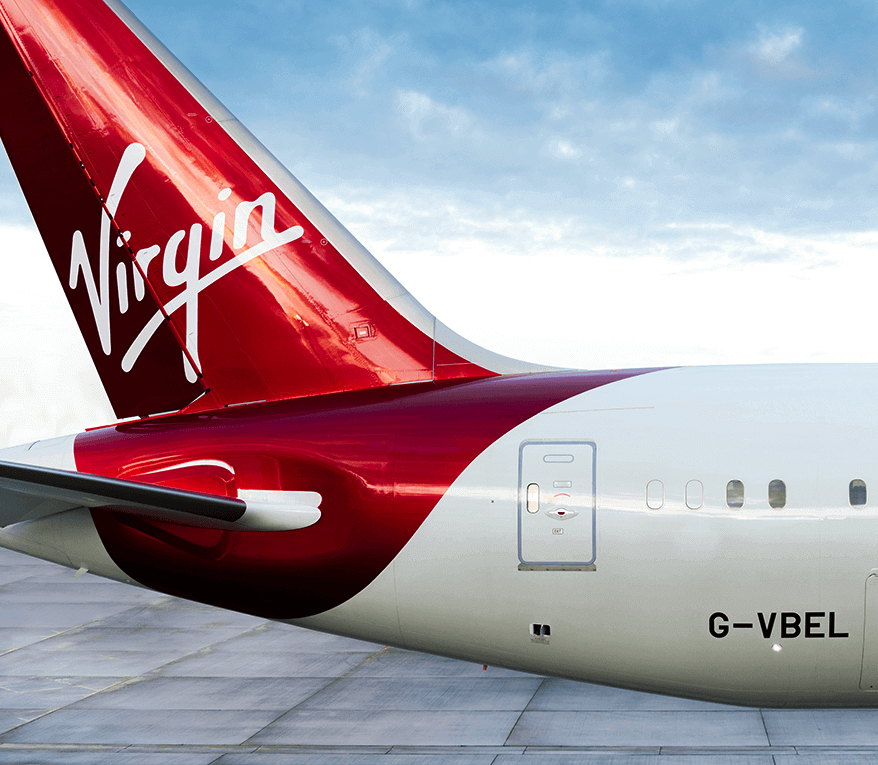Advertiser & Editorial Disclosure: The Bulkhead Seat earns an affiliate commission for anyone approved through the links below. This compensation may impact how and where links appear on this site. We work to provide the best publicly available offers to our readers. We frequently update them, but this site does not include all available offers. Opinions, reviews, analyses & recommendations are the author’s alone, and have not been reviewed, endorsed, or approved by any of these entities.
Virgin Atlantic will make history today as the carrier will be the world’s first to operate a flight with 100% Sustainable Aviation Fuel (SAF). Flight 100 will run between London Heathrow Airport (LHR) and New York John F Kennedy International Airport on a Boeing 787.
After a year of collaboration, this flight will demonstrate the capabilities of SAF as a replacement for fossil-derived jet fuel. SAF will play a significant role in the decarbonization of longhaul aviation and Virgin Atlantic’s goal of reaching Net Zero by 2050. The fuel is made from waste products and delivers CO2 lifecycle emissions savings of up to 70%. Performance is on a par with traditional jet fuel.
Aircraft operating with other technologies like electric or hydrogen remain decades away, but SAF can be used now to fuel current aircraft. It currently represents less than 0.1% of global jet fuel volumes and fuel standards allow for just a 50% SAF blend in commercial jet engines. The SAF used on this flight is a unique dual blend of 88% HEFA (Hydroprocessed Esters and Fatty Acids) supplied by AirBP and 12% SAK (Synthetic Aromatic Kerosene) supplied by Virent, a subsidiary of Marathon Petroleum Corporation.
According to the press release:
The HEFA is made from waste fats while the SAK is made from plant sugars, with the remainder of plant proteins, oil and fibres continuing into the food chain. SAK is needed in 100% SAF blends to give the fuel the required aromatics for engine function. To achieve Net Zero 2050, the innovation and investment needed across all available feedstocks and technologies must be harnessed to maximize SAF volumes as well as continuing the research and development needed to bring new zero emission aircraft to market.”
Shai Weiss, Chief Executive Officer of Virgin Atlantic, said:
Flight100 proves that Sustainable Aviation Fuel can be used as a safe, drop-in replacement for fossil-derived jet fuel and it’s the only viable solution for decarbonizing long-haul aviation. It’s taken radical collaboration to get here and we’re proud to have reached this important milestone, but we need to push further. There is simply not enough SAF and it’s clear that in order to reach production at scale, we need to see significantly more investment. This will only happen when regulatory certainty and price support mechanisms, backed by government, are in place. Flight100 proves that if you make it, we’ll fly it.”

United Airlines has made news with its own commitment to go green with a 100% reduction of its greenhouse gas (GHG) emissions by 2050. It has its own SAF plans and will decrease its carbon intensity by 50% from 2019 to 2035.
Anthony’s Take: Sustainable jet fuel is one of many ways that airlines are working to reduce their environmental impact. Kudos to Virgin Atlantic for being the first carrier to operate a 100% Sustainable Aviation Fuel flight.
(Image Credits: Virgin Atlantic and United Airlines.)
User Generated Content Disclosure: The Bulkhead Seat encourages constructive discussions, comments, and questions. Responses are not provided by or commissioned by any bank advertisers. These responses have not been reviewed, approved, or endorsed by the bank advertiser. It is not the responsibility of the bank advertiser to respond to comments.
Advertiser & Editorial Disclosure: The Bulkhead Seat earns an affiliate commission for anyone approved through the links above This compensation may impact how and where links appear on this site. We work to provide the best publicly available offers to our readers. We frequently update them, but this site does not include all available offers. Opinions, reviews, analyses & recommendations are the author’s alone, and have not been reviewed, endorsed, or approved by any of these entities.
